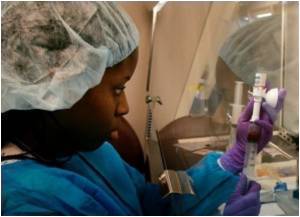Researchers based in the Netherlands have reported a genetic signature for a person's age - to within a decade or so - in a type of white blood cell.

Every time a T cell matures in the thymus it rearranges its DNA to create a molecular receptor that can recognize pathogens and other foreign molecules, leaving loops of excised DNA behind.
Kayser and his team quantified the levels of one particular T-cell loop sequence in 195 Dutch volunteers, and plotted them against their biological ages, which ranged from a few weeks to 80 years old.
They found that they could estimate a person's age to within 9 years fairly accurately.
"The correlation is pretty impressive. How useful it will be in practice as a forensic tool remains to be seen, although there will certainly be forensic cases where it will help as an investigative tool," Nature quoted Mark Jobling, a geneticist at the University of Leicester, UK, as saying.
Kayser doesn't expect that simply identifying a suspect's age, but hopes the technique could be combined with other sources of evidence to rule suspects in or out.
Advertisement
A potential limitation of the technique is that it could be a poor judge of age in people with HIV, diabetes and other conditions that perturb T cells.
Advertisement
Source-ANI












